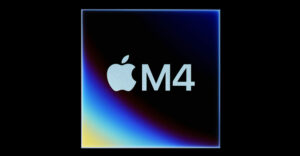
Chip challenger AMD is poised to announce its new mobile processor, dubbed Turion, to take on the increasingly significant mobile PC market and to shorten Intel’s head start in the thinner and lighter PCs that are popular currently.
Although it has aggressively challenged and won market share from Intel with its server and desktop computer processors, particularly with its Athlon line, AMD has lagged behind on desktop replacement laptops, where Intel’s Centrino technology provides lighter design and longer battery life.
Nevertheless, analysts indicate that AMD has been making mobile market progress during the last year, and the announcement of the Turion chip brings the challenger up to par with its larger rival.
“Out of the three products — desktops, servers and mobile — mobile has been the one where [AMD] has been weakest in comparison to Intel,” Mercury Research president Dean McCarron told TechNewsWorld. “However, over the last year, they’ve started competing successfully. This announcement is an acknowledgement that they’re getting better there and putting more into it.”
Going Mobile
McCarron said that although AMD has made efforts toward mobile processors in the past, it typically involved retargeting and retooling desktop processors to go mobile. While this entailed better power management, the company was not really offering notebook-specific products, McCarron said.
The analyst added that AMD has changed and is now starting off with a lower-power processor that may consist of the same processor core as a desktop, but is architected with a priority on power and heat issues for mobility.
“Going forward with new products, they’re just going to continue the effect,” McCarron said. “They will probably end up competing pretty head-to-head [with Intel].”
Silicon Similarities
McCarron said although AMD is taking a “shared-core” approach where desktop and mobile processors use the same processor core, Intel has separated its mobile and desktop chip cores. However, Intel may be moving back to a shared core approach, McCarron added.
McCarron said Intel’s Centrino path will continue to boost performance without cranking up processor clock speed.
“It’s power-sensitive performance,” he said.
McCarron said that with the same power-efficient cores, however, Intel’s and AMD’s architecture choices are similar and will likely continue to be so going forward.
Hot Market
Gartner research vice president Martin Reynolds told TechNewsWorld that AMD’s mobility challenges have been caused by processors running hot in notebooks. Although he credited the company with “good, fast processors,” Reynolds said that Intel is likely to keep its mobility edge because of its move to build different processor cores.
“Intel will continue to have an edge because of their architectural decision,” he said.
Reynolds did say that AMD’s newer 90-nanometer chip manufacturing processes would help the company reduce power consumption in its chips.
“They won’t be where Intel is with Centrino, but they will be in a position where they can get into this [thinner and lighter notebook] market,” he said.
Chips and Asparagus
There was some interest and discussion by observers on AMD’s choice of Turion as the name of its new mobile processor. Reynolds said the definition he found indicated a turion was a “shoot or sucker; a young shoot rising from the ground, rising from a subterranean bud.”
While reports also indicated the term was a reference to asparagus, Mercury’s McCarron recalled AMD’s history with the vegetable, recounting an AMD marketing ploy from two decades ago. McCarron said AMD came out with a “Liberty Chip” idea to release a new chip every week for a year. The corporate flag for the campaign was an image of asparagus, which typically takes a year to grow.
“It’s just a little throwback to AMD’s ancient history,” McCarron said.




















































